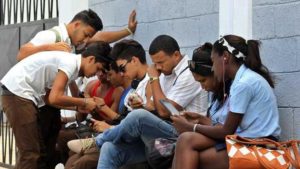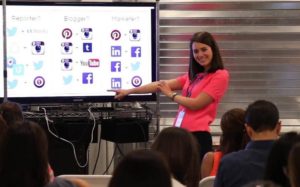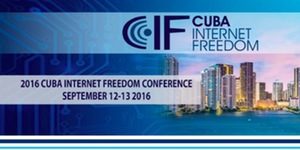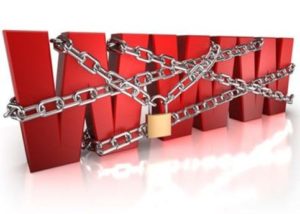![]() THE INTERNET CONFRONT CUBA AND UNITED STATES.
THE INTERNET CONFRONT CUBA AND UNITED STATES.
Leaving behind decades of confrontation between Cuba and the United States is not an easy task, but since both countries began the thaw, in little more than one year and a half have been able to reach agreements on issues of common interest such as the environment and tourism, although there is still a strong land disputes: the use of the Internet.
One of them moments of maximum tension is lived recently with the celebration in Miami of the Conference Cuba Internet Freedom, organized by the Office of transmissions to Cuba (OCB, according to its acronym in English).
In the event, held on 12 and 13 September, discussed issues such as who can connect and how, Cuban clandestine networks, Internet and universal right or dissent and activism in the digital age, among others. The reply to the Conference came from the United States of the Cuban Government, Josefina Vidal, Director who complained that the neighboring country blocks Internet access to “tens of sites” Americans and “are important” for the development of the island. “What say these examples on Internet freedom?”, questioned through his Twitter account, and stressed the impossibility of connecting from the island with Oracle and Netbeans pages to download tools for application development. The diplomatic Cuban included in their tweets catches of screen that show them messages of veto that is obtained to the trying to access from the island to the web mentioned. “Not even Adobe products can be downloaded directly from Cuba by the blockade”, added Vidal in another message.
Subversive technology
In that crossing of accusations, the meeting Cuba Internet Freedom brought to journalists independent of the island, innovative digital and activist political. “I allowed keep encounters with people that, as I, demand changes in Cuba related with the theme of the access to Internet and share my criteria and experiences to the respect”, says Norges Rodriguez, participant in the event and author of the blog out to the Manigua.
The Havana considered that United States uses this type of meetings and them new technologies to promote the change of regime in the island. “Aspire to the change of regime in our country through the use of them new technologies of the information and them communications (TIC)”, wrote the last Saturday the Professor Raul Capote, an exagente of the safety Cuban that was infiltrated in the CIA, in the newspaper official Granma. “Intend to use ICT for the dirty war against Cuba is not new – Capote – said. However, the development in the last decade has placed them in the main point of the subversive action against the island”.
Timid opening
Cuba is one of the countries with the lowest Internet penetration rates in the world, but his Government defends itself from criticism from Washington and ensures that it has a willingness to “contribute to the socialization and computerization of Cuban society”. The Cuban Executive offers as an example the young computer Club, offering free courses to learn the use of software. Created in 1987, today there are more than 600 of these facilities distributed by all the country’s municipalities. “The situation of the Internet in Cuba is atypical compared with other countries. There is a very poor and backward, infrastructure with a few users with high academic training that take you full advantage of these technical conditions”, says David Vázquez, creator of the Cuban Media gadget technology web.
While, Norges Rodriguez says that “the access to Internet in Cuba is critical” and points out that the island is of them few countries “in which not there is a service commercial of access to Internet in them homes and of them very few that not provides even service of Internet from the platform of telephony mobile”.
Until the moment, the connection to Internet in those homes Cuban only is authorized for professional as them medical, journalists or teachers college. From 2015, the Cuban authorities have driven wireless Internet zones located mainly in public parks scattered across the country, where 250,000 users through recharge vouchers daily connect at a price of $2 (1.7 euros) time.
Agencies/Tiempo/Excerpts/Internet Photos / Arnoldo Varona / TheCubanhistory.com
THE CUBAN HISTORY, HOLLYWOOD.
![]() EL INTERNET ENFRENTA A CUBA Y ESTADOS UNIDOS.
EL INTERNET ENFRENTA A CUBA Y ESTADOS UNIDOS.
Dejar atrás décadas de enfrentamiento entre Cuba y Estados Unidos no es una tarea fácil, pero desde que ambos países iniciaron el deshielo, en poco más de un año y medio han sido capaces de alcanzar acuerdos en temas de interés común como el medio ambiente y el turismo, aunque todavía queda un terreno en fuerte disputa: el uso de Internet.
Uno de los momentos de máxima tensión se vivió recientemente con la celebración en Miami de la conferencia Cuba Internet Freedom, organizada por la Oficina de Transmisiones hacia Cuba (OCB, según sus siglas en inglés).
En el evento, celebrado el 12 y 13 de septiembre, se discutieron asuntos como quién se puede conectar y cómo, las redes clandestinas cubanas, Internet como derecho universal o disidencia y activismo en la era digital, entre otros. La réplica a la conferencia llegó por parte de la directora para Estados Unidos del Gobierno cubano, Josefina Vidal, quien denunció que el país vecino bloquea el acceso por Internet a “decenas de sitios” estadounidenses y que “son importantes” para el desarrollo de la isla. “¿Qué dicen estos ejemplos sobre la libertad de Internet?”, cuestionó a través de su cuenta de Twitter, y destacó la imposibilidad de conectar desde la isla con las páginas de Oracle y Netbeans para descargar herramientas para el desarrollo de aplicaciones. La diplomática cubana incluyó en sus tuits capturas de pantalla que muestran los mensajes de veto que se obtienen al intentar acceder desde la isla a las web mencionadas. “Ni siquiera los productos de Adobe se pueden descargar directamente desde Cuba por el bloqueo”, agregó Vidal en otro mensaje.
Tecnología subversiva
En ese cruce de acusaciones, el encuentro Cuba Internet Freedom reunió a periodistas independientes de la isla, innovadores digitales y activistas políticos. “Me permitió mantener encuentros con personas que, al igual que yo, demandan cambios en Cuba relacionados con el tema del acceso a Internet y compartir mis criterios y experiencias al respecto”, señala Norges Rodríguez, participante en el evento y autor del blog Salir a la Manigua.
La Habana considera que Estados Unidos utiliza este tipo de encuentros y las nuevas tecnologías para impulsar el cambio de régimen en la isla. “Aspiran al cambio de régimen en nuestro país mediante el uso de las nuevas Tecnologías de la Información y las Comunicaciones (TIC)”, escribió el pasado sábado el profesor Raúl Capote, un exagente de la seguridad cubana que estuvo infiltrado en la CIA, en el periódico oficial Granma. “La intención de utilizar las TIC para la guerra sucia contra Cuba no es nueva –señaló Capote–. Sin embargo, el desarrollo de las mismas en la última década las ha situado en el punto principal de la acción subversiva contra la isla”.
Tímida apertura
Cuba es uno de los países con las tasas de penetración de Internet más bajas del mundo, pero su Gobierno se defiende de las críticas de Washington y asegura que tiene voluntad de “contribuir a la socialización e informatización de la sociedad cubana”. El Ejecutivo cubano pone como ejemplo los Joven Club de Computación, que ofrecen cursos gratuitos para aprender el uso de software. Creados en 1987, hoy hay más de 600 de estas instalaciones distribuidas por todos los municipios del país. “La situación de Internet en Cuba es atípica con respecto a otros países. Existe una infraestructura muy pobre y atrasada, con unos usuarios con alta formación académica que le sacan el máximo provecho a esas precarias condiciones técnicas”, asegura David Vázquez, creador de la web cubana sobre tecnología Cachivache Media.
Mientras, Norges Rodríguez afirma que “el acceso a Internet en Cuba es crítico” y señala que la isla es de los pocos países “en los que no hay un servicio comercial de acceso a Internet en los hogares y de los poquísimos que no brinda aún servicio de Internet desde la plataforma de telefonía móvil”.
Hasta el momento, la conexión a Internet en los hogares cubanos solo es autorizada para profesionales como los médicos, periodistas o profesores universitarios. Desde 2015 las autoridades cubanas han impulsado zonas de Internet inalámbricas situadas principalmente en parques públicos repartidos por todo el país, donde diariamente se conectan 250.000 usuarios mediante cupones de recarga a un precio de dos dólares (1,7 euros) la hora.
Agencies/Tiempo/Extractos/ Internet Photos/ Arnoldo Varona/ TheCubanhistory.com
THE CUBAN HISTORY, HOLLYWOOD.









